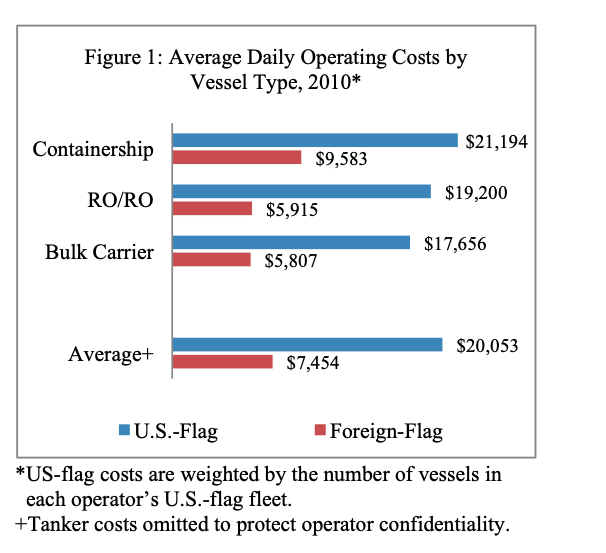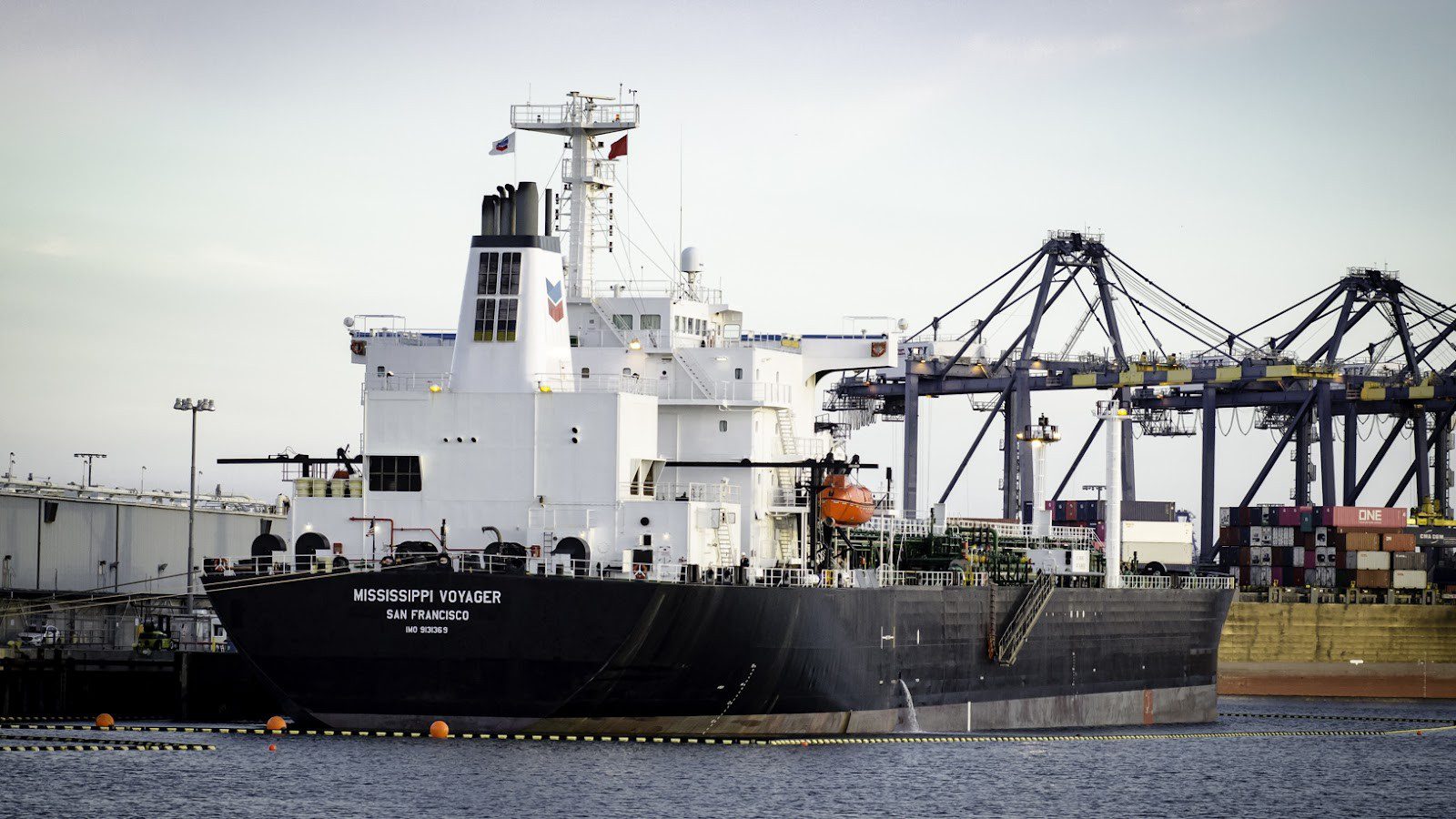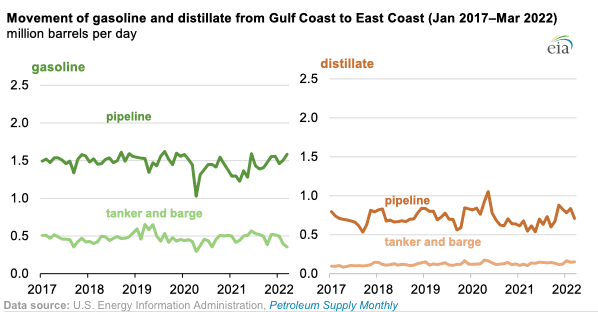There are two types of people in this world. The first is those who have never heard of the Jones Act, the law that requires American-built and staffed ships for maritime commerce within the U.S. I imagine these folks sleep peacefully each night and live in balanced harmony.
The other type is not so lucky. They have an impassioned, unshakeable opinion of the Jones Act. They believe it is either the root of all evil in the U.S. or believe it is something to be protected unselfishly. Doing away with the Jones Act, according to them, would either spark the collapse of Western civilization or would solve all earthly ills.
I won’t even talk about the Jones Act during Thanksgiving. I know better.
— Dooner ?☠️?️ (@TimothyDooner) June 29, 2022
Every few years, the Jones Act breaks out of its pigeonhole and enters the broader media conversation. It’s having another moment right now as gasoline and diesel prices climb.
One part of the cost of oil involves its transportation. Fuel moves around the U.S. via rail, pipelines and ships such as tankers and barges. Ships that operate from American port to American port must follow the Jones Act, meaning they’re built in the U.S. and owned, operated and crewed by Americans.

A 2011 Department of Transportation report showed that U.S.-flagged vessels, which are required while shipping within the United States, are far more expensive to operate than foreign-flagged ones. I would love a more recent study, but this is the best available. (U.S. Maritime Administration)
Despite these costs, it doesn’t appear waiving the Jones Act would really do much to address the cost of gas in the short term. However, waiving it in combination with limiting exports could help drive down the cost. Here’s why.
A tidy summary of the Jones Act and its controversy
The Jones Act is one section of the Merchant Marine Act of 1920. During the early 20th century, Americans found the British and German ships they depended on for international commerce had ditched them to wage war. Congress decided to help fund a merchant marine for the United States with hefty subsidies. These payments dried up by the 1980s when former President Ronald Reagan halted the flow of taxpayer money to the shipping industry.
Mercogliano and other Jones Act supporters say it’s crucial for America to maintain its own fleet of ships in the worst-case scenario of international war.
“It becomes a bargain between the government and shipping companies: We will subsidize you and in exchange we can use your ships during times of war,” said Joshua Hendrickson, an associate professor of economics at the University of Mississippi.

A small and charming Jones Act ship. (Jim / )
Every now and then, these opposing factions get the Jones Act in the headlines, and we’re currently lucky enough to be living through another one of those times.
Waiving the Jones Act wouldn’t do that much for the cost of fuel …
“Because U.S. vessels are more expensive to charter, it’s cheaper for a refiner in Baton Rouge, Louisiana, to send a cargo of gasoline to Brazil [rather] than to send that cargo to Philadelphia,” said the June 22 report from JP Morgan’s global commodities research team.
Even if we accepted JP Morgan’s bullish 10-cent estimate, the monthly savings for Americans isn’t considerable. Using the average cost of gas on the East Coast, the region most exposed to Jones Act vessels, a 10-cent reduction in the price of gas would save the typical U.S. driver a whopping $4 a month. (That’s according to a calculation that factors in a car averaging 28 miles per gallon and a person driving 1,200 miles per month — all averages in the U.S.)
… but there’s another intriguing solution
However, waiving the Jones Act and limiting exports would lure tankers from all over the world to move fuel within the U.S. That would increase supply and make fuel cheaper.

The Colonial Pipeline provides most of the Northeast’s domestic fuel. (U.S. Energy Information Administration)






